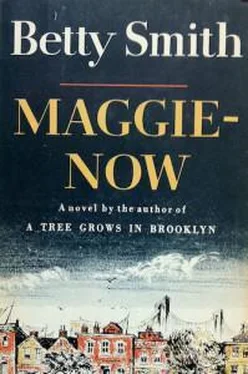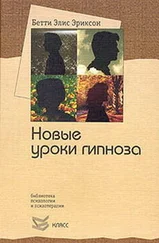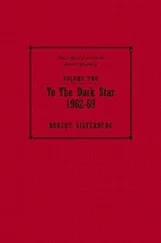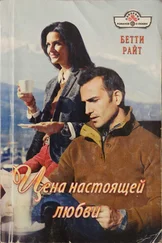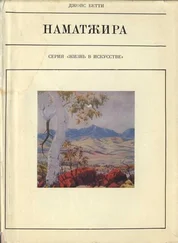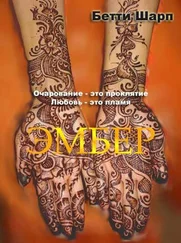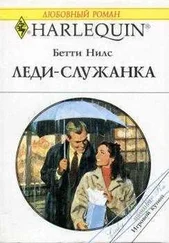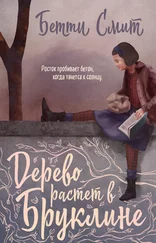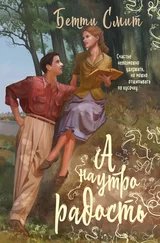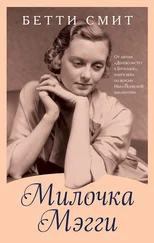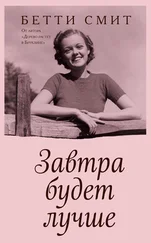Бетти Смит - Maggie-Now
Здесь есть возможность читать онлайн «Бетти Смит - Maggie-Now» весь текст электронной книги совершенно бесплатно (целиком полную версию без сокращений). В некоторых случаях можно слушать аудио, скачать через торрент в формате fb2 и присутствует краткое содержание. Жанр: Проза, на английском языке. Описание произведения, (предисловие) а так же отзывы посетителей доступны на портале библиотеки ЛибКат.
- Название:Maggie-Now
- Автор:
- Жанр:
- Год:неизвестен
- ISBN:нет данных
- Рейтинг книги:3 / 5. Голосов: 1
-
Избранное:Добавить в избранное
- Отзывы:
-
Ваша оценка:
- 60
- 1
- 2
- 3
- 4
- 5
Maggie-Now: краткое содержание, описание и аннотация
Предлагаем к чтению аннотацию, описание, краткое содержание или предисловие (зависит от того, что написал сам автор книги «Maggie-Now»). Если вы не нашли необходимую информацию о книге — напишите в комментариях, мы постараемся отыскать её.
Maggie-Now — читать онлайн бесплатно полную книгу (весь текст) целиком
Ниже представлен текст книги, разбитый по страницам. Система сохранения места последней прочитанной страницы, позволяет с удобством читать онлайн бесплатно книгу «Maggie-Now», без необходимости каждый раз заново искать на чём Вы остановились. Поставьте закладку, и сможете в любой момент перейти на страницу, на которой закончили чтение.
Интервал:
Закладка:
The kids stood rigid except for Daisy, who removed her thumb guard and took three big sucks.
"Go on and play when I tell you'" veiled Sheila' "or I'll give it to you. Good!"
Whooping like Comanches, the four kids dragged l\/laggie-Nov. away into the dirty wash. They bounced on the bundles and scattered the sorted clothes. They delved into the basket of wet clothes waiting to be hung on the line and belted each other with wet towels, screaming and laughing all the time while Mary and Sheila talked.
Finally, they knocked over the ironing board with a sadiron upended on it. The iron missed Daisy by about an inch.
"Just for that," shouted Sheila, "you'll all get it!"
They lined up somberly. Then Sheila did a strange thing.
She put her arm around Rose, gave her a walloping slap on the backside, and a kiss on the cheek at the same time.
She did the same to the other three. They sobbed. And grinned slyly at each other at the same time, making the dimples come and go.
"My turn! My turn!" demanded Maggie-Now.
Sheila gave her the same, explaining to Mary: "I give
'em a slap and a kiss at the same time so they know they're getting punished with no hard feelings."
~ limo I Home again in Brooklyn, Maggie-Now remembered her
"cousins." She spent her pennies on picture postcards to send to Boston. Her salutation was: "My dear Boston cousins." Her ending: "From your loving Brooklyn cousin."
Sometimes she got a card back, always written by Sheila.
"From cousin Sheila and all her flowers to the one rose, Maggie-Now."
A few months after their return, Mary had a letter from her mother saying that Sheila had given birth to her fifth child; a son. She had named him Joe.
"Why, oh why," wailed Maggie-Now, "didn't she ask me?
I would have told her to call him Chris."
"Why Chris?" asked her mother.
"Chris is short for chris-san-thee. . yak know what flower I mean, Mama. Then he would have fitted in the bouquet."
Her next card had the salutation: "My dear Boston cousins and Joe."
A' CHAPTER SIXTEEN ~
THE growing years of Maggie-Now were not unhappy ones. She always had enough to eat, although the food was plain. She had warm clothes in winter even if they were not beautiful. She liked her school days although she didn't like to study. She loved the Sisters who taught her although they were very strict in their discipline.
She was well adjusted because she knew where she belonged in the social SftUp of her small world. She had a friend who had a hair ribbon for every day in the week.
Maggie-Now had but two one for Sunday, one for weekdays. On the other hand, another friend was too poor to have any hair ribbon. Her hair was tied back with a dirty shoestring. Maggie-Now was sorry she didn't have seven hair ribbons but she was glad she didn't have to use a shoestring to tie back her hair.
As she grew older1 she gave some thought to poverty and riches. Her mother had asked her to read Little Wome7', explaining that ~ cot 1
it was a book about four girls who were very poor but happy just the same. Maggie-Now read the book and took issue with her mother.
"How can they be poor," she asked, "when they can waste hot potatoes to put in their muff. And I ain't. .
haven't a muff even. And then they have a servant and their father has money to go away on."
"To some people who are, say, used to three servants, to have only one servant is being poor. Poverty is relative."
The word "relative" puzzled Maggie-Now. How could
"poor" be a relation, she wondered. She didn't probe further into the meaning of the word because she was anxious to go out to play. The word came up later, in another conversation.
One night, Father Flynn was paying a parish call and he, Mary, Pat and lYlaggie-Now sat in the kitchen having coffee. Mary, as always, was talking eagerly with the priest.
He was one of the few people who made her articulate.
Patsy was listening with outward respect becau e he had been brought up to respect priests, but he didn't b. lieve a word Father Flynn was saying.
"I came from a small town," Father Flynn was saying.
"Everyone seemed the same. No one was rich and no one starved. I had an idea, then, that poor people wore colorful rags and had rosy cheeks and danced all night to the music of a concertina. Those were my Fran,cois Villon days. Later, I thought poor people lived in cellars and had lice and lived on hard crusts of bread which they stole from each other. I was reading the Russian novelists in those days. Why, I was quite mature before I knew that poverty, like so many other things, was relative."
That word again, thought Maggie-No\v.
The next day she asked her mother: "Why are some people rich and other people poor?"
"Yesterday, you wanted to know how big was the sky.
And last week you wanted to know where the wind went when it stopped blowing down Ainslie Street."
"I mean like: Florry says we're poor. Bea thinks we're rich."
"Florry9, father makes much more money than your father. Naturally, she thinks you're poorer than she is. But Beatrice's mother has to go out scrubbing for a dollar a day. Of course, she 1 1021
thinks that you, with a father who has a steady job, are richer than she is."
"It's all relations, then."
"Relations: " asked Mary, puzzled.
"Relations. But different than my Boston cousins are relations." "Oh, you mean, relative. Yes, like everything else, I suppose it is relative."
"What's relative?"
"Oh, Maggie-Now! How high is the sky?"
"I asked first."
"Well, say a man has only one dollar in all the world.
Somebody gives him a hundred dollars. Another man has a hundred dollars. He's always had a hundred dollars.
Someone gives him a dollar. He's just as poor as he was before. Now both men have one hundred and one dollars.
But one is rich and one isn't. That's relative, I suppose."
"You're just talking, Mama. You're not telling me."
"To tell you the truth, I don't know how to tell you."
"Did you live in a rich house when you were a girl?"
"Oh, dear!" sighed Marv. "Well, people who lived in crowded tenements thought we had a rich house. But the Mayor's wife thought our house was poor compared to hers."
"What did you think, Mama?"
"I didn't think one wan or the other," said Mary, trying not to get irritated by the incessant questioning. "I lived there."
"Why? "
"Don't be silly. I lived there because I was born there because my parents lived there."
"Did you like it?"
"Of course. I didn't know about any other home, you see."
"Did that make it relative?"
"Oh, Maggie-Now, please stop. I'm getting such a headache.' "So'm I," admitted Maggie-Now.
Maggie-Now asked Sister Veronica what a rich home was and what was a poor home.
"A cell," said the nun, "with a cot in it and a chair and a nail on the wall on which to hang a shawl, is a rich home if our Holy Mother and our Blessed Lord are there. A
grand home, with thick
~ hod]
carpets and velvet curtains and a golden harp in the parlor, is a poor home if our Blessed Lord and our Holy Mother are denied there."
Maggic-Now asked her father: "Papa, did you have a rich home or a poor home when you were a boy back in Ireland?"
Читать дальшеИнтервал:
Закладка:
Похожие книги на «Maggie-Now»
Представляем Вашему вниманию похожие книги на «Maggie-Now» списком для выбора. Мы отобрали схожую по названию и смыслу литературу в надежде предоставить читателям больше вариантов отыскать новые, интересные, ещё непрочитанные произведения.
Обсуждение, отзывы о книге «Maggie-Now» и просто собственные мнения читателей. Оставьте ваши комментарии, напишите, что Вы думаете о произведении, его смысле или главных героях. Укажите что конкретно понравилось, а что нет, и почему Вы так считаете.
